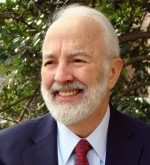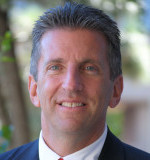Using randomized evaluations to address global poverty and other social policy challenges: An interview with Dean Karlan, Professor, Yale University, and President, Innovations for Poverty Action – Episode #112
 Addressing the nation’s — and the world’s — biggest challenges will require learning and doing what works. A powerful tool for doing that is the randomized evaluation, also known as a randomized control trial (RCT). It is a tool that is increasingly being used in the U.S. and around the world. Well-designed and well-implemented RCTs can provide strong evidence about what works — not only whether a program works or not, but also which strategies within a program or policy work best.
Addressing the nation’s — and the world’s — biggest challenges will require learning and doing what works. A powerful tool for doing that is the randomized evaluation, also known as a randomized control trial (RCT). It is a tool that is increasingly being used in the U.S. and around the world. Well-designed and well-implemented RCTs can provide strong evidence about what works — not only whether a program works or not, but also which strategies within a program or policy work best.
As evaluation experts (including RCT proponents) will note, RCTs are one tool within public managers’ analytical tool boxes, along with performance measures, process evaluation, cost-benefit analysis or cost analysis, well-designed quasi-experiments and other approaches. The goal is to use the most rigorous method possible for the question at hand.
To learn more about the value of RCTs, as well as to address some of the concerns or criticisms of the approach, we are joined by Dean Karlan (@deankarlan), a leading expert in using randomized evaluations in social policy. He is a professor of economics at Yale University and the president and founder of Innovations for Poverty Action (IPA), a non-profit that has conducted over 500 evaluations in more than 50 countries to build evidence about effective solutions to global poverty problems. His most recent book, co-authored Jacob Appel, is titled, “More Than Good Intentions.”
 The
The  Allegheny County, which includes Pittsburgh, is
Allegheny County, which includes Pittsburgh, is 
 Can a tax on sugary drinks reduce consumption and therefore fight obesity? The nation of Mexico, which has similarly high rates of obesity as the United States, is putting that question to the test. In 2013, Mexican lawmakers passed an excise tax on sugary drinks of 1 peso (about 8 cents) per liter, which is about a 10 percent tax. It also passed a tax on junk food.
Can a tax on sugary drinks reduce consumption and therefore fight obesity? The nation of Mexico, which has similarly high rates of obesity as the United States, is putting that question to the test. In 2013, Mexican lawmakers passed an excise tax on sugary drinks of 1 peso (about 8 cents) per liter, which is about a 10 percent tax. It also passed a tax on junk food. How can schools use low-cost solutions to help children make healthier food choices?
How can schools use low-cost solutions to help children make healthier food choices?  Mexico consumes a lot of soda and its soda industry (particularly Coca-Cola) is very powerful. Even so, in 2013, Mexico’s congress was able to successfully pass a nationwide one-peso-per-litre (about 10%) tax on sugary drinks, over the opposition of the soda industry. How did it happen?
Mexico consumes a lot of soda and its soda industry (particularly Coca-Cola) is very powerful. Even so, in 2013, Mexico’s congress was able to successfully pass a nationwide one-peso-per-litre (about 10%) tax on sugary drinks, over the opposition of the soda industry. How did it happen? of the Solutions Journalism Network.
of the Solutions Journalism Network. The Annie E. Casey Foundation, through its juvenile justice
The Annie E. Casey Foundation, through its juvenile justice  Increasing the graduation rates at community colleges is an important national challenge. Nationally, less than 40 percent of community college students attain a degree or certificate — and students who come to campus underprepared for college-level work (those needing developmental or remedial classes) have graduation rates below 30 percent.
Increasing the graduation rates at community colleges is an important national challenge. Nationally, less than 40 percent of community college students attain a degree or certificate — and students who come to campus underprepared for college-level work (those needing developmental or remedial classes) have graduation rates below 30 percent. To
To